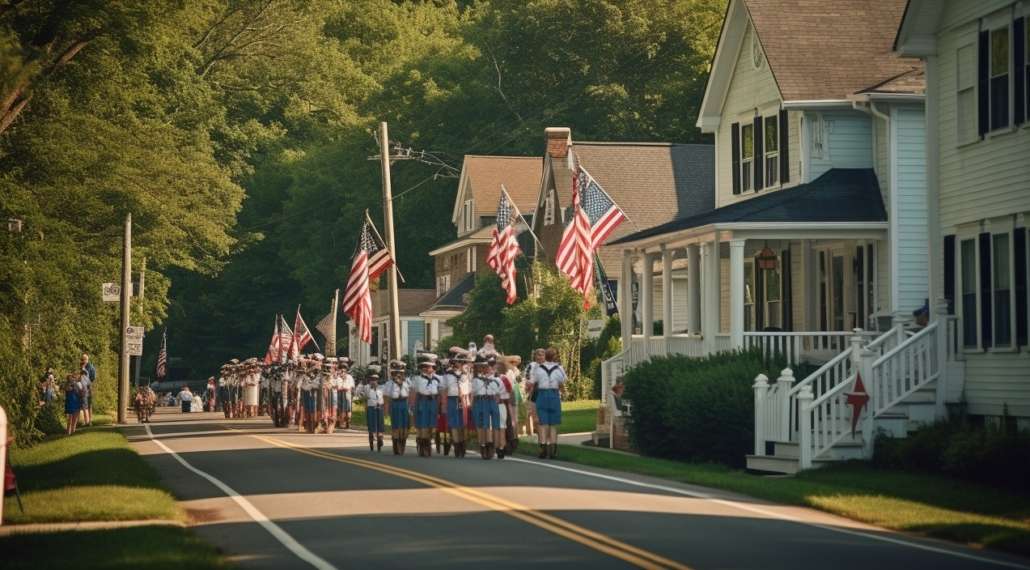Erskine Academy announces top 10 seniors (2023)

Top row, right-to-left: Malachi Lowery, Damon Wilson, Lily Matthews, Grace Hutchins, Sophia Pilotte; Bottom row: Mackenzie Toner, Gabriel Pelletier, Nabila Harrington, Carson Appel, Noah Rushing.
Erskine Academy has announced the class of 2023 Top Ten Seniors.
Valedictorian is Malachi Lowery, son of Hollie Hilton, of Vassalboro, and John Lowery, of Ellsworth. Throughout his four years at Erskine, Malachi has participated in such activities as Student Council, National Honor Society, the EA Leadership Team, EA Theater, LEO Club, the International Outreach Coalition, Soccer, Indoor Track, Tennis, and he has completed over 100 hours of community service projects. Malachi is a four-year honor roll recipient and has received awards of distinction in Algebra, English, Physics, U.S. History, and Physical Education. Malachi has served as Vice-President of the Class of 2023, he has been a Renaissance Recognition and Senior of the Trimester award recipient, and is a Maine Principals’ Association Award recipient. Malachi plans to attend the University of Maine to study Electrical Engineering.
Salutatorian is Damon Wilson, son of Aimee and Jeffrey Wilson, of Windsor. Damon has participated in such activities as National Honor Society, Student Council, EA Theater, the EA Leadership Team, Prom Committee, and served as the Field Hockey Manager. Damon has also served as President of the Class of 2023 for three years and as one of two Class Marshals in 2022. A student who has received high honor roll distinction every trimester, Damon was the recipient of awards of excellence in Algebra, Geometry, PreCalculus, Statistics, US History, and Spanish. In addition, Damon has also been a recipient of the George Eastman Young Leaders Award and Renaissance Recognition and Senior of the Trimester awards. Damon plans to attend Kennebec Valley Community College in the General Studies program.
Third in academic standing is Lily Matthews, daughter of Kim and John Matthews, of China. Lily is a member of National Honor Society and she has participated in such activities as Student Council, EA Theater, Future Business Leaders of America, LEO Club, Math Team, Speech Team, the Girl Up Club, Soccer, and Lacrosse. In addition, Lily has completed nearly 100 hours of community service projects. Lily has received high honor roll distinction every trimester, has received awards of achievement in Biology and Calculus, and is a Bausch & Lomb Honorary Science Award recipient. Lily plans to attend Syracuse University to major in Mechanical Engineering.
Fourth in academic standing is Grace Hutchins, daughter of Teresa and Randy Hutchins, of Litchfield. Grace has participated in such activities as National Honor Society, Student Council, Future Business Leaders of America, the EA Leadership Team, Math Team, Field Hockey, Basketball, and Lacrosse. Grace has received awards of distinction in Geometry, PreCalculus, Calculus, and Physical Education, and she has achieved four year honor roll status. In addition, Grace was the recipient of the Society of Women Engineers Award, served as one of two Class Marshals in 2022, and she is a Renaissance Senior of the Trimester award recipient. Grace plans to attend the University of Maine with a major in Civil Engineering.
Fifth in academic standing is Sophia Pilotte, daughter of Andrea Pilotte, of Palermo, and Aaron and Michelle Pilotte, of Warren. Sophia is a member of National Honor Society and has been a participant of the International Outreach Coalition, EA Theater, LEO Club, Student Council, and Soccer. Sophia has also completed over 150 hours of community service projects. Sophia has received the Phi Beta Kappa Award, and is a four year honor roll recipient. Sophia plans to attend the University of Maine with an undeclared major.
Sixth in academic standing is Mackenzie Toner, daughter of Thomas Toner, of Windsor, and Chrystal Toner, of Augusta. Mackenzie is a member of National Honor Society and she has participated in such activities as Future Business Leaders of America, Field Hockey, Basketball, Softball, and she has completed over 200 hours of community service activities. Mackenzie is a four-year honor roll recipient, has received a Renaissance Senior of the Trimester award, and received the Smith College Book Award. Mackenzie plans to attend Thomas College, in Waterville, with a major in Digital Marketing Management.
Seventh in academic standing is Gabriel Pelletier, son of Hilary and Ryan Pelletier, of China. Gabriel is a member of National Honor Society and he has participated in such activities as Future Business Leaders of America, Soccer, Basketball, Baseball, and has completed nearly 100 hours of community service activities. Gabriel is also a four-year honor roll recipient. Gabriel plans to major in Biology at the University of Maine.
Eighth in academic standing is Nabila Harrington, daughter of Paul Harrington, of China, and Nita Harrington, of Waterville. Nabila has been a member of such activities as the Speech Team, LEO Club, the EA Leadership Team, HOPE (Helping Others Persevere at Erskine), Soccer, and Lacrosse. Nabila has received honor roll distinction every trimester, and she has received awards of excellence in Social Studies and French. Nabila plans to attend the University of New England with a major in Medical Biology.
Ninth in academic standing is Carson Appel, son of Suzanne and William Appel, of Windsor. Carson is a member of National Honor Society, and he has participated in such activities as Student Council, LEO Club, Math Team, the EA Leadership Team, Soccer, Basketball, Baseball, Tennis, and he has completed nearly 200 hours of community service projects. Carson has also received high honor roll distinction every trimester, and was selected as a 2022 Scholar in the National Rural and Small Town Recognition Program. Carson plans to major in Public Policy at Cornell University.
Tenth in academic standing is Noah Rushing, son of Allyson and Jason Rushing, of China. Noah is a member of National Honor Society and has participated in such activities as Future Business Leaders of America, HOPE (Helping Others Persevere at Erskine), Soccer, Basketball, and has completed over 100 hours of community service projects. Noah is also a four-year honor roll award recipient. Noah plans to major in Computer Science at the University of Maine.
The Class of 2023 graduation ceremony will be held at the Augusta Civic Center, on Friday, June 9, at 6:30 pm.








 Catherine Estes, of Sidney, and Josette Gilman, of China, were named to the spring 2023 dean’s list at Cedarville University, in Cedarville, Ohio.
Catherine Estes, of Sidney, and Josette Gilman, of China, were named to the spring 2023 dean’s list at Cedarville University, in Cedarville, Ohio.


 China to hold moment of prayer
China to hold moment of prayer